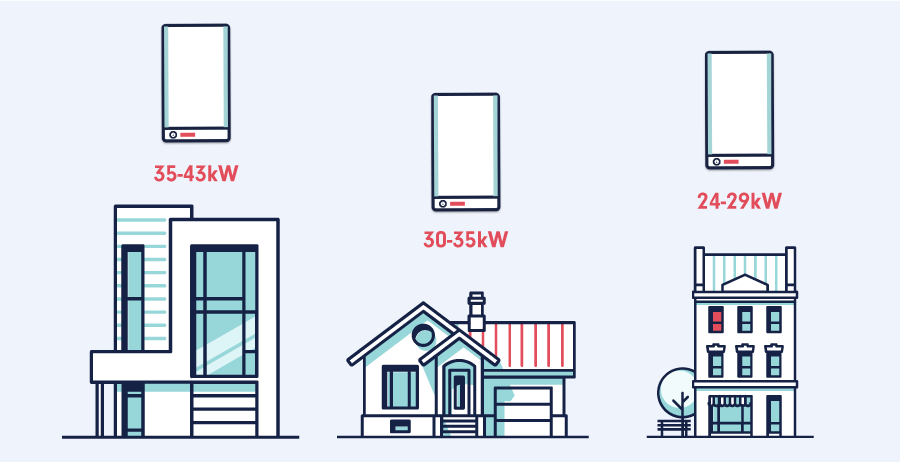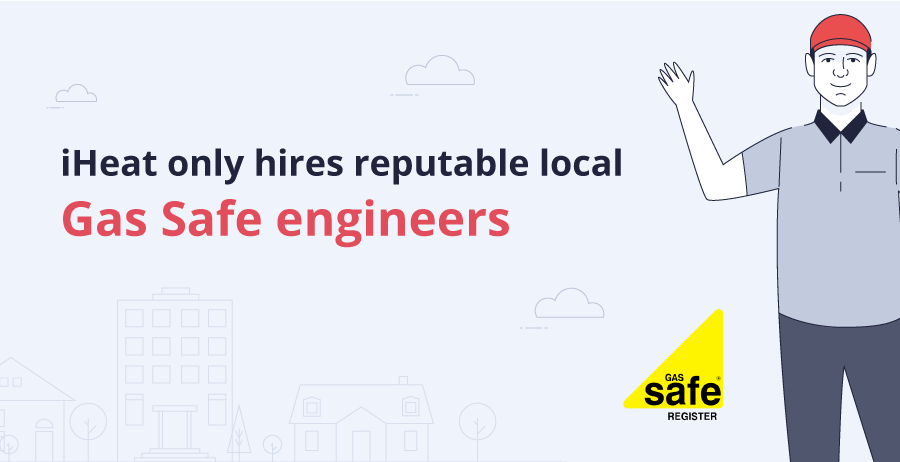

Written by Stephen Day
Gas Safe Engineer
Updated: 9th October, 2025
According to a 2017 study by uSwitch, 18% of UK households had experienced a boiler breakdown. That’s roughly 4.7million broken boilers, each with repairs or replacements costing anything between £50 and £5,000+.
Some people can end up paying well over even £10,000 for work on their boiler and pipes when disreputable engineers are added.
Get a quote in 60 seconds, fitted as fast as next day!
0% APR finance available.
Having a broken boiler in the middle of winter is stressful enough without having to worry that a rogue engineer is overcharging you. Here are some steps to avoid paying too much for a new boiler replacement.
Quick and easy 2025 - iHeat new boiler cost guide
Knowing what you’re looking for in a new boiler cost can help you estimate roughly how much you should spend on your boiler replacement.
Having even a small amount of knowledge can also help you to determine if an engineer is trying to pull the wool over your eyes when it comes to what you need.
It’s worth researching beforehand which boiler is right for your home. This includes taking a look at your current boiler.
You may be looking to swap your old system out for a combi boiler, or you may just be looking to replace your current combi with a brand-new one.
You should also consider whether your boiler uses LPG or gas and the output size your household requires.

The size of the boiler often refers to the output in kilowatts (kW) as opposed to the physical dimensions of the boiler itself. Kilowatts are the measurement of energy that is output by the boiler in the form of heat.
Generally, the bigger your home and family, the larger the output you’ll need and the more expensive the boiler.
iHeat has a helpful guide on how to determine the right type and size of boiler for your home.
If you are planning to have your boiler moved, or if the job is more complex, such as removing a back boiler, you should expect to pay extra on top of the average boiler and installation cost.
Sometimes, you may require new pipes if the old ones are leaking which can also cost extra. Any optional features such as smart thermostats and wireless controls will also pose additional costs.
As tempting as it may be to get your boiler repaired as soon as possible, calling an engineer and accepting the first quote you're given is a mistake. As you would with most things, shop around for the best deal.
According to the Energy Saving Trust, the average new boiler installation costs around £2,300, but you can expect to find a boiler installation between £1,500 and £3,500, depending on the factors you’ve already considered.
Once you have found multiple quotes, you should evaluate the trustworthiness of the engineers who have given them.
If the cheapest quote came from an installer with one star reviews for example, you know you should probably avoid them.
To get a quick and easy quote in less than ten minutes, click here. iHeat offers a reliable service for an affordable price, and a Gas Safe registered engineer can be with you to replace your boiler as soon as 24 hours with no hidden charges.
Get a quote in 60 seconds, fitted as fast as next day!
0% APR finance available.
Ensure you can pay for your boiler the way you want to. If you require a finance plan over 10 years, make sure that this is an option your installer can offer you to avoid an awkward conversation if they require an upfront payment.

Don’t be fooled by cowboy installers. Ensure your engineer is Gas Safe registered and has good reviews. iHeat only hires reputable local Gas Safe engineers. Get your free fixed quote today.
Get a quote in 60 seconds, fitted as fast as next day!
0% APR finance available.
Last updated: 9th October, 2025

Written by Stephen Day
Gas Safe Engineer at iHeat
Stephen Day is a Gas Safe registered and FGAS certified engineer with over 20 years of hands-on experience in the heating, cooling, and renewable energy industry, specialising in boiler installations, air conditioning, and heat pump systems.
LinkedInArticles by Stephen Day are reviewed by iHeat’s technical team to ensure accuracy and reliability.

13th February, 2026
Boiler energy efficiency refers to how well a boiler uses its fuel to generate heat. This...
 Read Article
Read Article

12th February, 2026
This Valentine’s Day we want to let you in on a dirty little secret…
 Read Article
Read Article

12th February, 2026
In this guide, we’ll be answering some of the most frequently asked questions about what h...
 Read Article
Read Article
No obligation. Takes less than 60 seconds.